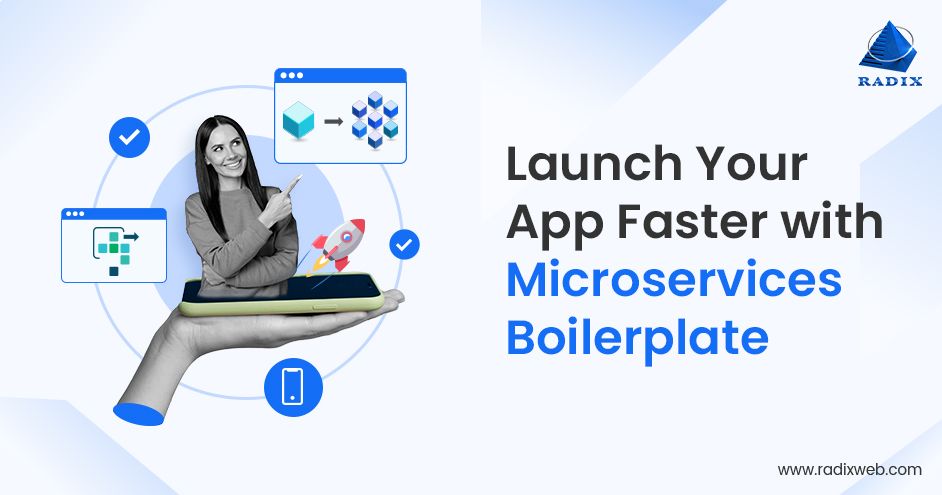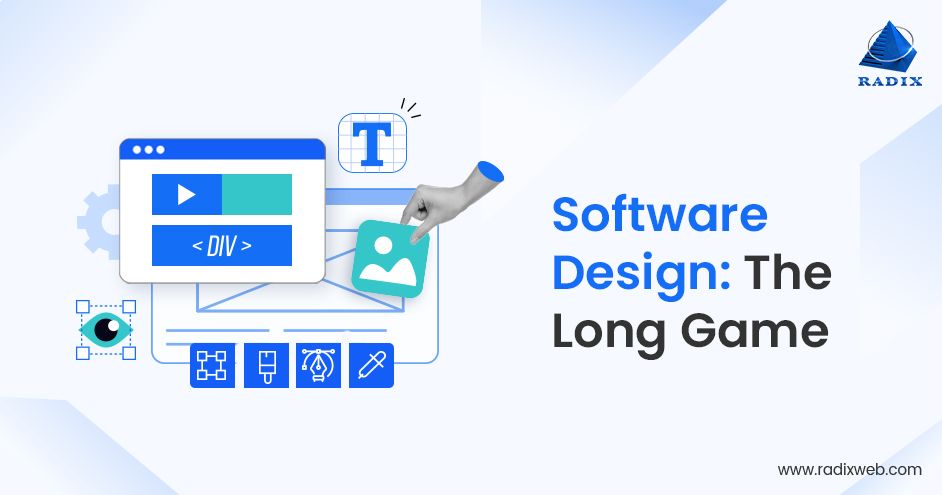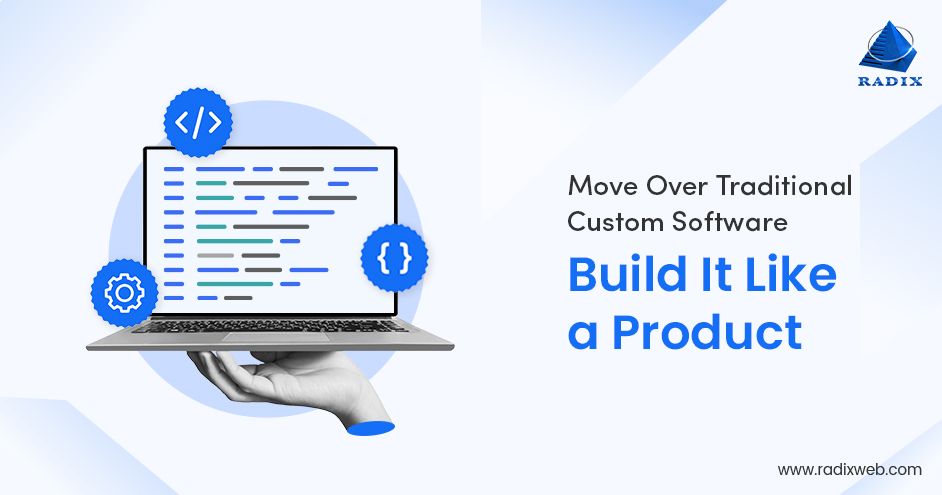
Discover what’s next for AI in healthcare in 2026 - Get Access to the Full Report
Custom Retail Software Solutions : Key to Retail Business Success


The pandemic made online retail or eCommerce the poster child of 2020. Covid guidelines, quarantine rules, social distancing, and lockdowns pushed traditional retail into huge losses. According to Forrester, a global loss of $2.1 billion was inflicted worldwide.
With business environments rapidly changing as it was at the beginning of 2020, people in retail shifted their focus to eCommerce technology. Essentially, with the help of eCommerce stores, retailers want to bridge the gap between offline and online shopping by utilizing software for process optimization and minimal human interaction. Ken Fleming, President, Logistyx, foresees that eCommerce growth is likely to accomplish an ambitious YOY of 20% due to this significant shift to online retail. Therefore, as per the report, 80% of consumers anticipate increasing their use of digital platforms for purchasing.
In the current digital age, online retail stores deliver exceptional customer experiences to remain competitive. It is quintessential to manage store processes, automate manual operations, and provide seamless services. A retail management system is a one-stop solution for all of this.
What are the Benefits of Retail Software Solution?
Since the retail business is exposed to considerable changes due to consumer behavior, a market-ready solution must be devised. Today’s consumers are impatient. 87% of buyers will leave a store if they do not find a preferred item or nobody can assist them. Likewise, 30% of buyers wait less than 2 minutes to determine if their chosen item is available in stock or not. In addition, 78% of customers would detest using a particular retailer if they have had three incomplete or late deliveries.
Therefore, brick-and-mortar stores must undergo a massive technological shift to meet the changing pace and stay ahead of competitors.
Developing custom retail software solutions is the ultimate choice for companies of varied sizes. This type of software can easily integrate with retail business, be scalable, and be ready to meet the requirements of both a single shop and a chain of retail shops consisting of several POS (point of sales).
A robust quality retail software solution offers the following benefits:
- Automation: The store tasks can be automated, including inventory auditing, billing, pricing regulation, payroll records, reporting, and return processing.
- Real-time: The system allows users to control their shop floors and warehouses from an online mode, thus quickly identifying the items out of stock, send quick alerts if an item is out of order, and avoid downtime.
- Customer-Centric: With custom retail software solutions, employees can automatically devote more time to customers when the system performs tasks.
Custom retail software solutions can be cloud-based and on-premise.
Cloud-based retail software solutions, also called SaaS (Software as a Service ), do not require hardware-dependent installation. You only need a stable internet connection. SaaS retail solutions are automatic and easy to manage.
On-premise solutions are installed on the computers or the local servers of retailers. You would require an IT specialist for system maintenance, handling updates, and all major bug fixes.
General capabilities and features of retail software solutions include product management, inventory, order, supply chain, marketing campaigns, financial transactions, human resources, customer relations, and beyond.
Moreover, implementing an inventory management system into the retail store warehouse improves operational efficiency, enhances the quality of service, saves money and time, increases the rate of conversions, thus leading to better customer satisfaction. In addition, you could also implement a cloud-based inventory management system as it can greatly benefit a retail warehouse. By providing real-time visibility into inventory levels, it allows store managers to efficiently track stock and avoid stockouts or overstocking.
Develop a custom retail software solution that enhances your customer satisfaction level
Build Custom Solution
Types of Retail Software Solutions
According to Statista, the worldwide retail eCommerce sales with be approximately $5.4 trillion in 2022. Many software developers keep a watch to cater to the dynamic retail sector and deliver specific solutions to ease and boost different processes involved in the retail business.
Famous turnkey platforms, such as Big Commerce and Shopify to inventory management systems, CRMs, and social media systems to manage retail software are diverse examples.
To help you choose the most valuable tools for your business, here’s what you need to know:
#1: Payment Processing Software
This is a retail management system that connects stores with payment systems and banks. Its primary functions are:
- Processing online payments and credit card
- Storing records of customer payment in a secure place
- Customized invoice creation
- Creating transaction reports and status updates
- Reconciliation with the bank
#2: Point of Sale Software (POS)
Retail Point of Sale software comprises hardware like computers, tablets, barcode scanners, and cash registers. It also consists of software that can be implemented in offline stores to perform spot sales.
POS solutions unify multiple functions like inventory control, financial processing, layaways returns, and discount management.
There are different categories of POS, which depends on the featured hardware:
- Mobile Point of Sales solutions permits movement as you perform transactions. You can use it on the go. They are available on the latest smartphones. Even a delivery person can use it.
- Desktop Point of Sales systems is installed on the store computers. They are usually more comprehensive and robust.
- Self-service kiosks are the most popular POS solution in fast-food joints and restaurants. This type of POS enables clients to place orders and immediately pay for the same without a cashier involved. These solutions reduce waiting time, remove long queues, and increase the average size of the order.
#3: Inventory Management System
An inventory management system is software that controls stocks of the warehouse and automates the processes. Some common examples include:
- Stocks are synchronized automatically with orders, allowing instant inventory updates, and supporting informed decision-making in the supply chain area.
- Automatic invoicing ensures you can save time and deliver a transparent revenue and price formation.
- Auto report generation delivers real-time insights to plan, procure, optimize stocks, and make sales predictions.
- The expiry tracking process is automated to eliminates the risk of inferior quality goods delivery to users, thereby boosting customer satisfaction.
A retail management system equipped with inventory management software is generally powered with RFID, tracking technologies, and barcode scanning features.

#4: Retail Management Software
Retailers can opt for a complete digital platform and integrate various tools that manage retail activities.
A well-integrated retail management system can provide multiple services like:
- Inventory management
- Billing and invoicing
- CRM (customer relationship management)
- Marketing management
- Data analysis
- Stock verification
- Report generation
Implementing digital retail solutions can help business owners simplify numerous processes by automating them. You have a single data source that delivers relevant and transparent information about products, customers, and finance.
#5: eCommerce Platforms
Online stores are in high demand. And many new retailers are keen on joining the eCommerce party! It makes a lot of sense today to be digital-first and have a relevant retail software solution.
Some of the vital features of modern eCommerce software solutions are:
- Product catalogs
- Search filters and options
- Shopping cart
- Different checkout options
- Secure payment processing system
- Inventory management system
- Marketing management system
- Customer management system
#6: Retail ERP Software
Enterprise Resource Planning or ERP software applies to countless industries, which includes retail as well. These systems integrate different modules to manage business processes.
- The module for customer management takes care of customer data such as age, gender, location, purchase history, and search to improve sales strategies and marketing campaigns.
- The employee management module handles money flows as well as commercial transactions.
- The supply chain management module maintains a balance between warehouses and orders.
- The module for project management categorizes products based on different controls and criteria of the lifecycle, which includes expiry dates.
As a thumb rule, ERP is a customizable solution so that retailers can integrate them easily with third-party systems to develop exact modules based on unique requirements.
#7: Omnichannel Retail
Due to the rising number of different purchasing channels that customers use, omnichannel eCommerce platforms are the topmost priority.
Omnichannel retail solutions are digitized commerce platforms that focus on offline as well as online sales. They also provide traceability and synchronization across multiple touchpoints, whether mobile applications, websites, or brick-and-mortar stores.
SAP Commerce Cloud is an excellent example of an omnichannel platform that caters to both B2B as well as B2C channels. It offers a complete range of eCommerce features, including order and product management, content personalization, and customer support delivery to integrated touchpoints.
Want to build a customized software solution that gives a smooth omnichannel retail experience?
Hire Our Developers
Creating Retail Management Software
Finally, there are five key steps to create a retail management system:
- Choose the right vendor
- Plan and budget
- Develop and implement
- Test
- Maintain
The above stages are crucial to building successful retail management software, but if you are new to all of this, you can partner with an experienced Software development agency. A company that can help you build a robust solution for your retail business.
Conclusion
Starting in 2020, eCommerce retail sales have skyrocketed, and most of the consumers today turn to online shopping for all their needs. A development partner with extensive experience creating eCommerce and retail management software can help you build such a robust system.
Ready to brush up on something new? We've got more to read right this way.





